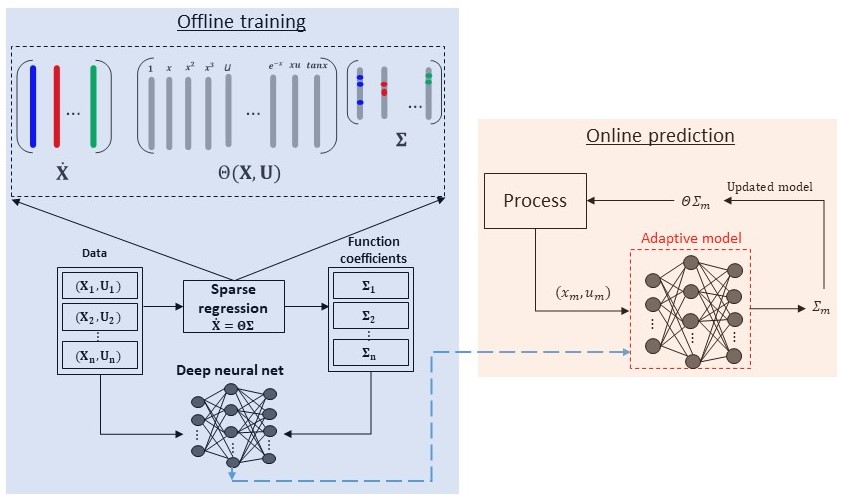
Chemical processes are complex and often characterized by nonlinearity, time variation, and uncertainty. As a result, data-driven modeling approaches have gained widespread popularity in industry and academia for modeling these processes. However, a model trained offline is not sufficient to deal with process uncertainties, which are prevalent in chemical processes. This limitation necessitates an adaptive modeling approach that can predict nonlinear process dynamics in real-time by coping with process uncertainties. Based on this motivation, in our group, we work on developing data-driven adaptive modeling frameworks for modeling nonlinear process systems and predicting dynamics in real time. Specifically, we use the techniques of sparse regression with deep learning to build an adaptive sparse model that can readily cope with abrupt dynamical changes on-the-fly. Further, this developed model can be integrated into various process monitoring and control applications.
Literature:
Bhadriraju, M. S. F. Bangi, A. Narasingam, and J. S. Kwon, “Operable adaptive sparse identification of systems (OASIS): application to chemical processes”, AIChE J., 2020, 66, e16980.
